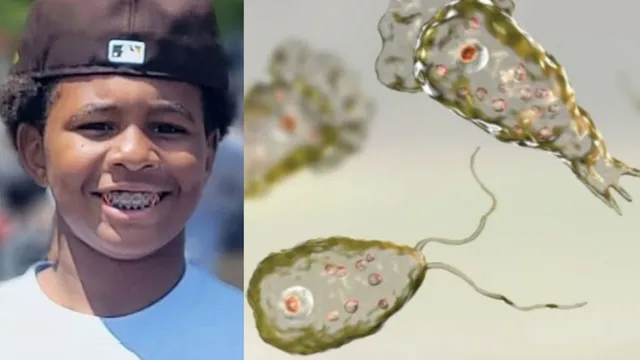- By Sakshi Srivastava
- Sat, 26 Jul 2025 04:20 PM (IST)
- Source:JND
The family of a 12-year-old boy from South Carolina is grieving an unthinkable loss after he died from a rare infection caused by the brain-eating amoeba Naegleria fowleri. The boy, identified as Jaysen Carr, passed away on July 18, days after contracting the fatal infection following a swim at Lake Murray, near Columbia. In a statement issued by the Bailey Law Firm, Jaysen was described as a “bright and beloved” middle school student. The family is devastated and still trying to comprehend the tragedy. “His loss is unimaginable, and our hearts are with his family as they grieve their son and search for answers,” the statement read.
The family expressed gratitude for the care Jaysen received at Prisma Health Children's Hospital – Midlands, and the outpouring of love from the community. They have also requested privacy as they prepare to lay him to rest.
The Source Of Infection
According to the family's statement, Jaysen became ill after swimming in Lake Murray, a popular freshwater recreation spot. The South Carolina Department of Public Health (SCDPH) confirmed on July 23 that the exposure to Naegleria fowleri likely occurred in early July at the lake. The department noted that while they believe Lake Murray was the source, complete certainty is difficult due to the natural occurrence of the organism in warm freshwater bodies such as lakes, rivers, and streams.
What Is 'Brain-Eating Amoeba'?
Naegleria fowleri is a microscopic amoeba found naturally in warm freshwater environments. It is often called the “brain-eating amoeba” because it causes Primary Amebic Meningoencephalitis (PAM), a rare but nearly always fatal brain infection that destroys brain tissue. According to the Centers for Disease Control and Prevention (CDC), most people exposed to the amoeba do not get sick. However, it becomes dangerous when contaminated water enters the nose, allowing the amoeba to travel to the brain.
Protective Measures
The CDC recommends the following precautions to reduce risk of infection:
1. Wear a nose clip when swimming or diving in warm freshwater.
2. Keep your head above water in hot springs.
3. Use only distilled or boiled tap water for nasal rinsing or sinus flushing.
Although such infections are extremely rare, they are often fatal. The Carr family's legal team stated they will “stand beside this family not only to seek the truth, but to help ensure no other family endures a loss like this.”

